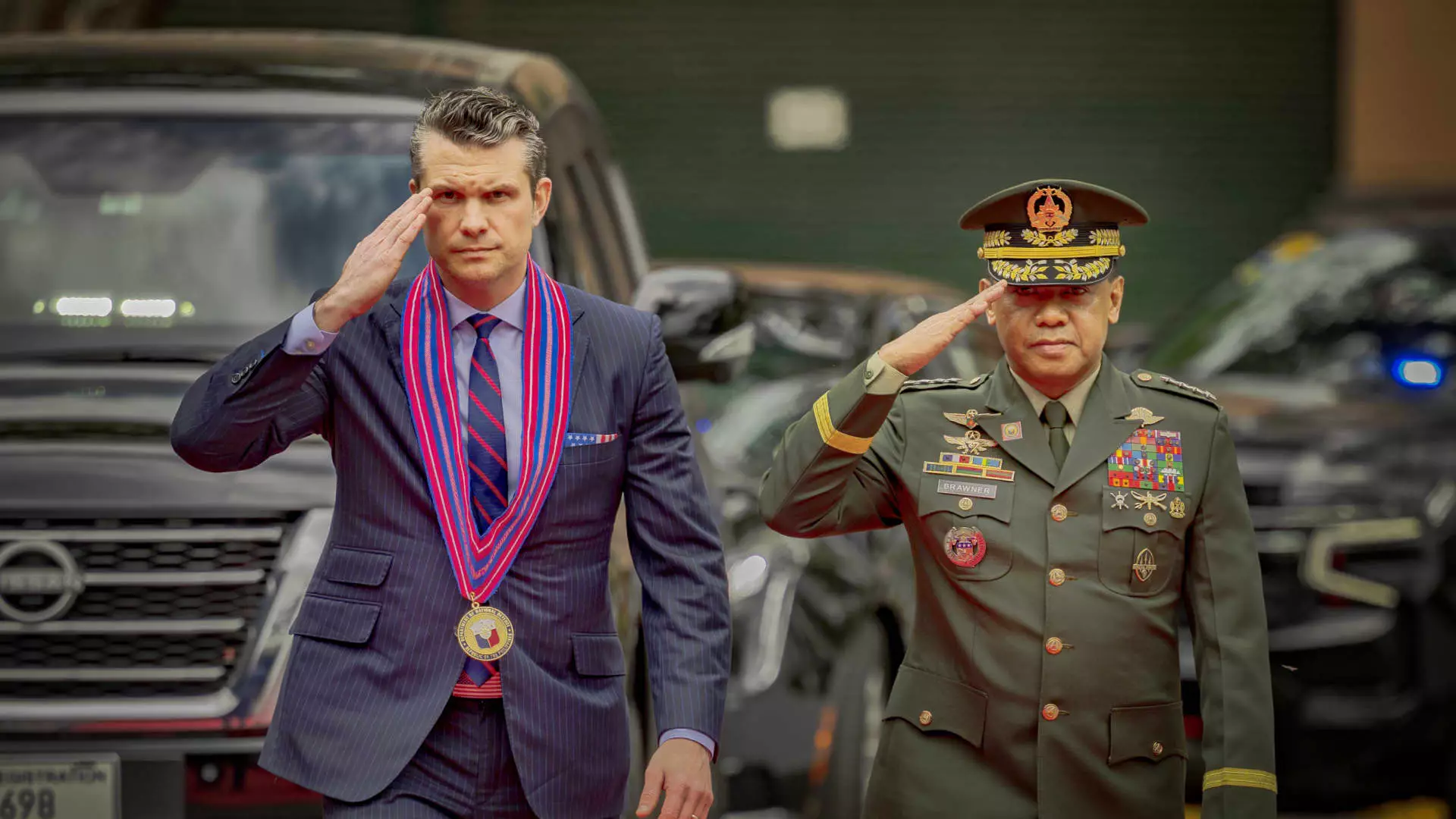In a world fraught with uncertainty, U.S. Defense Secretary Pete Hegseth recently characterized Japan as an “indispensable partner” in confronting China’s military assertiveness. This statement, while resonant in its commitment to alliance-building, also raises a jarring question: Are we overly reliant on Japan as our frontline defense in the Indo-Pacific theatre? It is evident that mutual dependency could lead to vulnerabilities; the weight of responsibility lies heavily upon the fragile shoulders of both countries amid escalating regional tensions.
Japan’s strategic position, with its geographical proximity serving as a leash on China’s expansionist efforts, certainly enhances its significance in U.S. military strategy. Yet, such a reliance bears the risk of entangling the U.S. deeper into conflicts that are not inherently American concerns. A “cornerstone of peace and security,” as labeled by Hegseth, hints at a relationship that could tilt dangerously toward American imperialism under the guise of benevolence.
Military Upgrades: A Double-Edged Sword
The announcement of plans to overhaul the U.S. military command in Japan to heighten operational efficacy undeniably appears strategic. By establishing a combined commander, the U.S. is clearly looking to adapt to the evolving geopolitical landscape. However, what is the cost of this military upgrade? The fundamental question looms: Does this approach reflect a genuine dedication to regional safety, or does it veer into reckless provocation?
Japan’s ongoing increase in military spending, particularly for long-range missiles, signals a troublesome military escalation. This trajectory diverges from its post-WWII pacifist constitution, potentially pushing Japan toward a tit-for-tat arms race in the region. Thus, while Hegseth and Japanese Defence Minister Gen Nakatani echo harmonious sentiments about collaboration, it also quietly underscores a precarious pivot away from peace.
The Irony of Treaty Dynamics
The bilateral defense treaty’s fairness has ignited discussions about reciprocity in posturing and responsibility. Trump’s mantra of insisting that Japan should bear an increased financial burden for hosting U.S. troops unearths the sensitive dynamics of military alliances. Should strategic partnerships be monetized, or should they transcend economic agreements to embody a collective responsibility to regional security?
In an ironic twist, Hegseth’s enthusiastic endorsement of Japan’s military role serves to deflect public scrutiny away from the burgeoning U.S. military expenses and commitments overseas. It is worth noting that Japan is shouldering the burden of hosting nearly 50,000 U.S. personnel while simultaneously ramping up its own defenses—signifying a potentially unsustainable model of military dependence.
The Clash of Regional Aspirations
One of the more troubling aspects of U.S.-Japan collaboration lies in the implication of regional dominance. Hegseth’s call for increased access to Japan’s strategic islands emphasizes not just cooperative defense strategies, but a commitment to subordinate nations in the Asia-Pacific hierarchy. This raises the unsettling reality: is the U.S. merely using Japan as a pawn in a larger geopolitical game against China?
China’s reaction—or lack thereof—to these developments underscores the sensitivity of this entire exchange. The silence enveloping the Chinese foreign ministry reflects a cautious approach, indicating a potentially volatile backdrop for heightened confrontation.
The Cautionary Tale
Hegseth’s Asia visit, particularly his memorial attendance on Iwo Jima, serves as a poignant reminder of the destructive legacy of war. The past is forever entwined with the present; as the U.S. navigates this new strategic landscape, a balance must be struck between vigilance and aggression. The imperative of open communication and mutual respect should guide these alliances, yet past demonstrations of military might often overshadow peaceful diplomacy.
In the backdrop of military partnerships and strategic collaborations, engaging in transparent dialogues becomes paramount. The alarming trend of leaking sensitive information, as evidenced by Hegseth’s controversy over text messages discussing U.S. operations, only heightens the atmosphere of suspicion and fear.
Amidst the backdrop of heightened military engagements in the Indo-Pacific, the central tenet remains: every action has the power to either fortify alliances or unravel them. The winds of change are strong, and if history serves as a guide, nationalistic fervor coupled with military readiness can correlate irrevocably with conflict escalation. The U.S. and Japan must tread carefully as they chart their path in an increasingly complicated world.


Leave a Reply